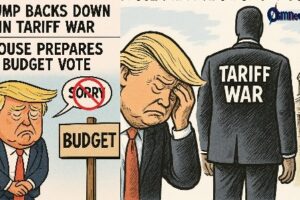Donald Trump has selected Chris Wright, a prominent figure in the oil and gas industry, as his nominee to head the U.S. Department of Energy. Known for his work in advancing fracking technology, Wright’s nomination signals Trump’s commitment to bolstering the fossil fuel sector, a key pillar of his energy policy platform. Wright, the founder and CEO of Liberty Energy, has been a staunch advocate of increasing fossil fuel production, a goal highlighted by Trump’s campaign slogan, “drill, baby, drill.”
In a statement, Trump emphasized Wright’s pivotal role in shaping U.S. energy independence, calling him “a pioneer of the American Shale Revolution” who transformed global energy markets. Trump praised Wright as a “key leader” who will foster innovation and streamline regulations to initiate what he described as a “new Golden Age of American Prosperity and Global Peace.” Wright’s appointment marks a strategic move to assert U.S. energy dominance and reduce reliance on foreign oil, aligning with Trump’s vision of “America First” energy policies.
Chris Wright’s Stance on Climate Change and Energy Security
Wright’s views on climate change and energy security have sparked both support and controversy. A climate change skeptic, Wright has publicly questioned the urgency of addressing global warming and downplayed the notion of a pressing “energy transition” towards renewables. In a video posted on his LinkedIn profile last year, Wright stated, “There is no climate crisis, and we’re not in the midst of an energy transition either,” reflecting his firm belief that fossil fuels remain crucial to human prosperity.
Known for prioritizing “secure, reliable, and affordable” energy sources, Wright has argued that economic and social benefits should be at the forefront of energy policy decisions. His stance aligns with Trump’s approach, which dismisses renewable energy targets in favor of policies that prioritize American energy independence and economic growth. As energy secretary, Wright is expected to lead initiatives that favor fossil fuels, a perspective welcomed by Trump’s supporters but criticized by environmental advocates.
Trump’s Establishment of the Council of National Energy
The Trump campaign also announced that Wright will serve on a newly created Council of National Energy, which will play a critical role in shaping the nation’s energy landscape. According to the campaign, the council will focus on “cutting red tape and enhancing private sector investments across all sectors of the economy,” positioning the United States as a leader in fossil fuel production. The council is expected to work closely with both government agencies and private energy companies to streamline regulations that may otherwise hinder production and economic growth.
This council aligns with Trump’s broader vision to consolidate energy policy control under federal guidance while empowering private-sector investments. Industry analysts predict that this council will push for policies that favor oil, gas, and coal production, potentially reversing recent trends towards clean energy and emissions reduction. Critics argue that this approach could undermine global climate commitments, but supporters claim it will reinvigorate the U.S. economy and create jobs.
Implications for U.S. Energy Policy and Global Impact
Wright’s appointment is widely seen as a victory for the fossil fuel industry, which anticipates significant growth under Trump’s second administration. Trump’s promise to open areas such as the Arctic for drilling underscores his commitment to expanding U.S. fossil fuel resources. Wright, who led Pinnacle Technologies before Liberty Energy, played an instrumental role in the fracking boom that established the U.S. as the world’s largest oil producer, a legacy he is expected to continue as energy secretary.
With Wright at the helm of the Department of Energy, the U.S. is poised for a policy shift away from renewable energy investments toward expanding fossil fuel production. Trump’s previous rollback of environmental protections and withdrawal from the Paris climate agreement highlighted his administration’s approach to energy independence. Wright’s tenure could further impact global energy dynamics, particularly as the U.S. prioritizes production over environmental concerns, setting the stage for a renewed era of American-led fossil fuel dominance on the global stage.














